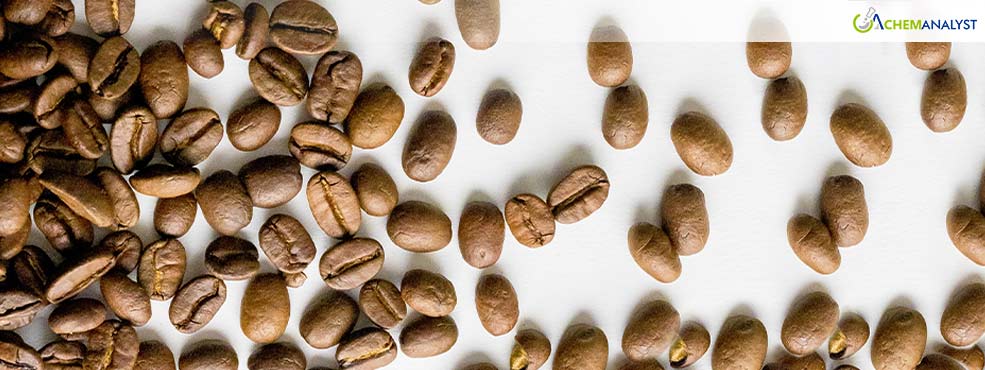Welcome To ChemAnalyst

The global coffee market is navigating a period of unprecedented volatility, with prices for arabica coffee soaring to record highs. This surge, attributed to a combination of factors, has raised alarm bells among coffee traders, roasters, and consumers alike. For the past year, the price of arabica coffee has nearly doubled, driven primarily by concerns about a tight supply. As the world's largest producer of arabica beans, Brazil is at the centre of the storm, and weather disruptions are the leading cause of supply concerns.
Severe weather conditions, including heatwaves and dry spells, have ravaged key coffee-growing regions in Brazil, which is responsible for roughly 40% of global arabica production. The harsh conditions have left farmers uncertain about the upcoming harvest, with some already holding back their remaining stocks of coffee beans, hoping to sell them at a more favourable price. As a result, coffee futures have surged, with arabica prices rising sharply in recent weeks. The impact of these price increases has already been felt by coffee traders and roasters, many of whom are scrambling to secure beans at competitive prices.
While Brazil’s production of both arabica and robusta beans is expected to decline in the upcoming crop year, there is a glimmer of hope for the market. Recent meteorological data indicates improved rainfall patterns in Brazil’s key arabica-growing regions, which could provide much-needed relief to stressed coffee plants. However, this improvement is unlikely to immediately reverse the market’s trajectory, and the industry remains cautious.
The situation has created a ripple effect that extends beyond coffee farmers and traders. Coffee retailers, particularly small roasters and independent cafes are now faced with a difficult decision: raise prices to keep up with rising wholesale costs or absorb the increased expenses and risk shrinking profit margins. Some major coffee chains have already announced price hikes, with reports suggesting that consumers may eventually feel the effects in the form of higher costs for their daily cups of coffee. The question now is whether these price hikes will reduce demand, as some analysts warn that rising costs could lead to decreased consumption.
The uncertainty surrounding coffee prices is compounded by the fact that warehouse inventories of arabica beans are at their lowest levels in recent years, and market speculation suggests that the supply squeeze could worsen. Though some analysts expect Brazil's production to slightly improve in the coming season, the global coffee market remains highly vulnerable to disruptions, particularly given the tightness of supplies.
As the coffee industry grapples with these challenges, all eyes are on the weather, production forecasts, and potential shifts in consumer behaviour. The future of coffee prices will depend on how the situation unfolds in Brazil and other key coffee-growing regions. Retailers, producers, and consumers alike will be closely monitoring the evolving dynamics, as the impact of this market turbulence continues to reverberate across the coffee supply chain.
We use cookies to deliver the best possible experience on our website. To learn more, visit our Privacy Policy. By continuing to use this site or by closing this box, you consent to our use of cookies. More info.
